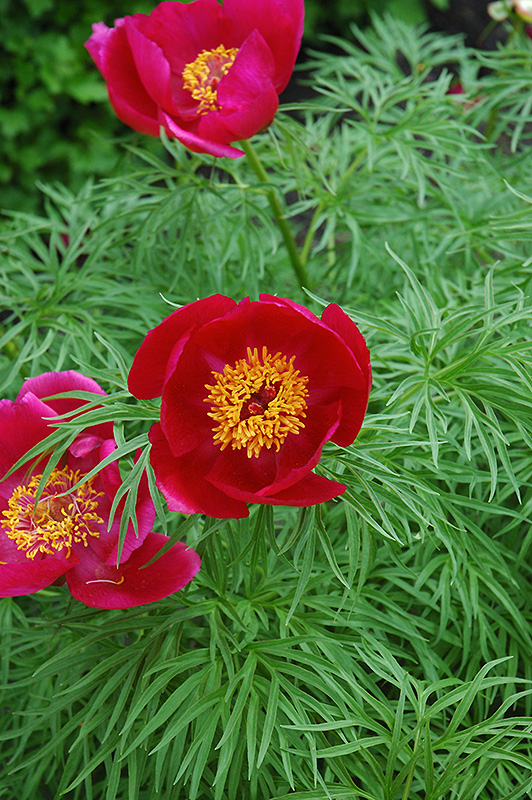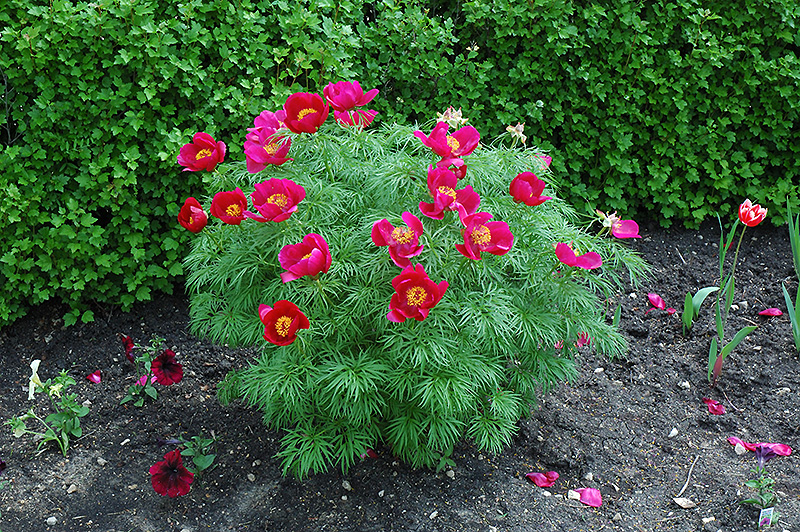Japanese Fernleaf Peony
Paeonia tenuifolia
Height: 23 inches
Spacing: 20 inches
Sunlight:
![]()
Hardiness Zone: 2a
Ornamental Features
Japanese Fernleaf Peony features bold lightly-scented red cup-shaped flowers with yellow centers at the ends of the stems from late spring to early summer. The flowers are excellent for cutting. Its deeply cut compound leaves remain green in colour throughout the season.
Landscape Attributes
Japanese Fernleaf Peony is an herbaceous perennial with a more or less rounded form. It brings an extremely fine and delicate texture to the garden composition and should be used to full effect.
This is a relatively low maintenance plant, and should be cut back in late fall in preparation for winter. Deer don't particularly care for this plant and will usually leave it alone in favor of tastier treats. Gardeners should be aware of the following characteristic(s) that may warrant special consideration;
- Disease
Japanese Fernleaf Peony is recommended for the following landscape applications;
- Mass Planting
- General Garden Use
Planting & Growing
Japanese Fernleaf Peony will grow to be about 23 inches tall at maturity, with a spread of 23 inches. When grown in masses or used as a bedding plant, individual plants should be spaced approximately 20 inches apart. The flower stalks can be weak and so it may require staking in exposed sites or excessively rich soils. It grows at a slow rate, and under ideal conditions can be expected to live for approximately 20 years. As an herbaceous perennial, this plant will usually die back to the crown each winter, and will regrow from the base each spring. Be careful not to disturb the crown in late winter when it may not be readily seen! As this plant tends to go dormant in summer, it is best interplanted with late-season bloomers to hide the dying foliage.
This plant should only be grown in full sunlight. It prefers to grow in average to moist conditions, and shouldn't be allowed to dry out. It is not particular as to soil pH, but grows best in rich soils. It is somewhat tolerant of urban pollution. This species is not originally from North America. It can be propagated by division.




